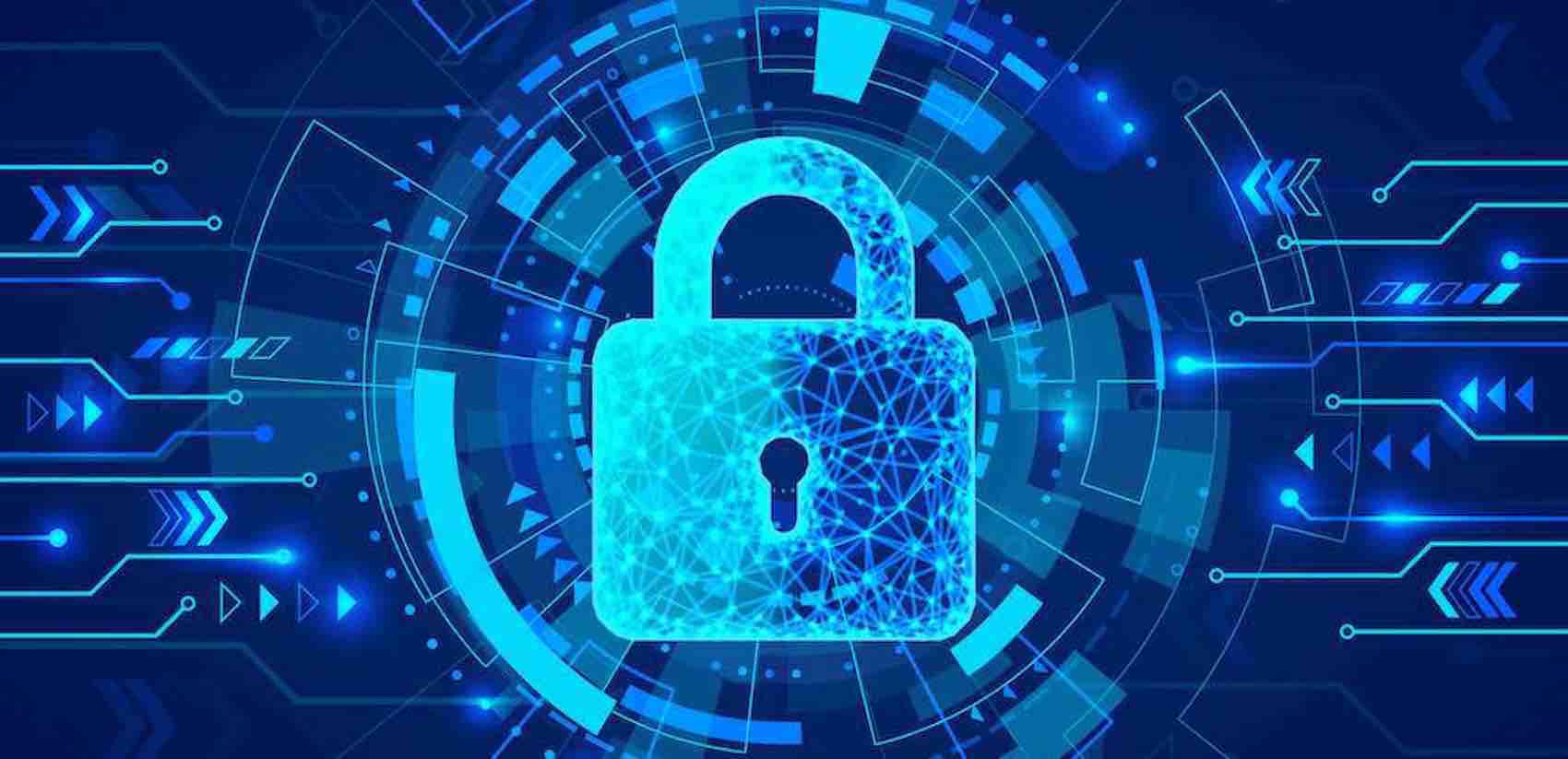bighotbaconizer
Well-Known Member
The government is watching us, but we can use VPNs and open-source software to get around them. Take a look.
The US has many freedoms that we here in Canada do not have. They’ve got limits to what their governments can do, and their courts are willing to enforce these limits. Many of us here on freecanada dream of escaping to the US. Unfortunately, that’s just not a realistic goal for most of us. Aside from untenable visa requirements, our lives are firmly rooted here, in Canada. OUR country.
However, we can be free online. That’s where we get a sense of community and can voice our opinions. This is why this tyrannical, corrupt Liberal government is coming down hard on the online space.
The Problem With Canada
Things are bad for the internet in Canada. Not only are they regulating what normal people can post, but they’re legislating against big tech companies, ISPs, and social platforms. It is a full-blown assault on internet freedom from multiple directions. I can guarantee you that behind the scenes, RCMP, CSIS, and whatever other agencies they’ve created have turned their full might onto monitoring the internet. Great Leader Trudeau would have directed them to do this.
That means freecanada is 100% being monitored right now. It could be passive, or there could be active accounts here that are federal agents. Bots are common. And each and every one of our profiles are being researched, looking for any hints that can give away our real identities.
If you are here without using a VPN, then they already know who you are. That means you are in a government database somewhere, and that means you are a target. If Trudeau begins rounding up opponents, you WILL be one of them.
None of this is a conspiracy theory. It is fact.
If you’ve uploaded photos, they will strip them for metadata, and that will tell them your phone, computer, when and where the photo was taken, and even your ISP. Facial recognition can match any people in your photos to likely candidates. Even if you pull an image or gif from the internet and post it here, they can follow the footprints and find what computer you were using through your ISP.
You need to be safe going forward.
VPN + TOR
First of all, you may need to create a new account if you’ve been using freecanada or omegacanada without a VPN. You’re likely compromised at this point.
Next, get a VPN.
What to look for:
No logging - you need a VPN provider that doesn’t keep logs of your activities. Providers in the US and Canada mostly do, thanks to government regulations, so find one that is offshore. NordVPN is great, as is Proton VPN.
Nodes - How many entry/exit points do they have? Make sure they have lots in many different places around the world.
Encryption - Duh. Make sure it’s a true encrypted VPN and not just a proxy server, otherwise there’s no point.
Caps and speed - you want fast and reliable and you don’t want 1990s style bandwidth caps.
You’re going to have to pay. There’s no such thing as free on the internet. A free VPN isn’t a real VPN. Thankfully VPNs are cheap. NordVPN is only $30 a year. A YEAR. And they check all the boxes. (No, I’m not shilling for Nord). I chose Nord because they're based in Panama and have nodes all over the world. They have no logging and encrypt traffic. There have been some rumors about them, but Nord has been very upfront that none of these are true, and they back their claims with real-world data.
Another reason I like NordVPN is that they integrate well with TOR browsers.
TOR on its own is not secure. Government can see where you enter and exit the TOR network, meaning they’ve pinged your ISP instantly. When you use a VPN with it, you cover your entry and exit nodes.
The problem is that many VPNs don’t play nice with TOR and thus don’t hide your nodes. NordVPN does by creating a ‘tunnel’ through which TOR travels. You launch the VPN first, then your TOR browser. You’re now practically invisible on the internet. Whether you use Brave or the Onion browser is your choice.
Linux
Remember we were talking about all that metadata? There are some ways around that.
Use a Linux distribution. Linux is a free and open-source operating system, and there are hundreds of different ‘flavours’ to choose from.
Ubuntu - the most popular
Mint - easiest and Windows-like
OpenSUSE - most customizable
Elementary OS - Mac-like
Fedora - clean and minimalist
Beginners should probably stick with a GNOME 3 shell, which is simply the main user interface that the different distributions (distros) have put their own skin on top of. Ubuntu, Mint, and Elementary are the best for pure Linux beginners. Experienced user already have their favourite (and it's probably not GNOME 3 lol).
Those are some of my favourites. Each one has a devoted community. There are thousands of free, open-source applications available. You can find something to replace all of your big-tech brand name programs.
If you can’t live without something, there’s a good chance it exists on Linux. For example, there’s a native Spotify app, there’s Steam and a bunch of others. However, remember metadata….
You can partition your hard drive and dual boot Linux. Or run it through a virtual machine like VirtualBox. If you have an old laptop collecting dust, Linux is a FANTASTIC way to restore it back to life. Linux is lightweight and easy on resources.
But get this.
There are even Linux phones!
Pinephone is a $200 smartphone running Linux. That means no tracking. None. Nada. Zip!
If you have an old Android hanging around, you can easily sideload a Linux OS onto it.
Ubuntu Touch
Sailfish OS
Postmarked OS
Mobian
Luna OS
Mozilla is expected to release its first Firefox OS this summer. A complete privacy-focused mobile operating system based around Firefox. How cool is that?
You should NOT be using the following when posting on freecanada:
Android
ChromeOS
macOS
Windows is a toss-up. On its own, it is tracking you, but there are a billion tweaks and programs you can use to mask yourself.
iOS is in a strange place. It is more private than the others and Apple does a good job protecting privacy. However, there’s evidence that Apple IS tracking you, and shares data
For God’s sake, whatever you do, don’t talk about or transcribe ANYTHING to a smart speaker!!!!
About Crypto
We tend to think that cryptocurrency is anonymous. It is not. Every transaction on the blockchain is available to the public. This is what makes it so secure: the ability for anyone to scrutinize ledgers. Bitcoin is particularly vulnerable. You see, if you trade BTC, your public address gets recorded in the blockchain. When you exchange your BTC for cash, the government can then see who exactly turned that public address into money.
That's exactly how the US authorities busted a couple of ransomware operators just last week!
Monero claims to get around this, and they do a good job, but it's becoming extremely more difficult to access Monero as more and more exchanges shut it down. Plus, once again, when you convert Monero to another coin in order to cash out, you show up in public.
The truth of the matter is that cold, hard cash is the best. Not debit/credit. Real physical cash. If you can convert that cash into crypto through a peer-to-peer meetup, then you're laughing.
Ethereum and Web 3.0
If you don't know about Ethereum, go and learn about it after you finish reading this. The blockchain and the idea of a decentralized internet is fascinating. Ethereum is a pioneer, and probably not the final iteration of the concept. It is the first, however.
There are more and more smart-contract-based decentralized apps (Dapps) showing up. A great decentralized video hub is Odysee. It uses the Ethereum protocol to remain decentralized, which means you can remain anonymous when using it. Creators get rewarded in a native crypto token called LBRY.
Is it 100% secure? No, probably not. Remember that the government has unlimited resources to throw at the issue of anonymity, and shares resources with other powerful governments. They are literally treating you the same way they treat a terrorist. You can guarantee that Web 3.0 is a major target of their efforts.
Still, it offers some degree of freedom and a glimmer of hope for the future.
Stay Safe, Frens
There it is. Use Linux, use TOR, and always use a VPN. Remember, it is 100% fact that we here are being monitored and government agents are actively working on finding out who we are at this moment. There are gestapo thugs getting paid right now to find you. If you don’t protect your online identity, one day you’ll end up behind barbed wire as an enemy of the Trudeau state.
The US has many freedoms that we here in Canada do not have. They’ve got limits to what their governments can do, and their courts are willing to enforce these limits. Many of us here on freecanada dream of escaping to the US. Unfortunately, that’s just not a realistic goal for most of us. Aside from untenable visa requirements, our lives are firmly rooted here, in Canada. OUR country.
However, we can be free online. That’s where we get a sense of community and can voice our opinions. This is why this tyrannical, corrupt Liberal government is coming down hard on the online space.
The Problem With Canada
Things are bad for the internet in Canada. Not only are they regulating what normal people can post, but they’re legislating against big tech companies, ISPs, and social platforms. It is a full-blown assault on internet freedom from multiple directions. I can guarantee you that behind the scenes, RCMP, CSIS, and whatever other agencies they’ve created have turned their full might onto monitoring the internet. Great Leader Trudeau would have directed them to do this.
That means freecanada is 100% being monitored right now. It could be passive, or there could be active accounts here that are federal agents. Bots are common. And each and every one of our profiles are being researched, looking for any hints that can give away our real identities.
If you are here without using a VPN, then they already know who you are. That means you are in a government database somewhere, and that means you are a target. If Trudeau begins rounding up opponents, you WILL be one of them.
None of this is a conspiracy theory. It is fact.
If you’ve uploaded photos, they will strip them for metadata, and that will tell them your phone, computer, when and where the photo was taken, and even your ISP. Facial recognition can match any people in your photos to likely candidates. Even if you pull an image or gif from the internet and post it here, they can follow the footprints and find what computer you were using through your ISP.
You need to be safe going forward.
VPN + TOR
First of all, you may need to create a new account if you’ve been using freecanada or omegacanada without a VPN. You’re likely compromised at this point.
Next, get a VPN.
What to look for:
No logging - you need a VPN provider that doesn’t keep logs of your activities. Providers in the US and Canada mostly do, thanks to government regulations, so find one that is offshore. NordVPN is great, as is Proton VPN.
Nodes - How many entry/exit points do they have? Make sure they have lots in many different places around the world.
Encryption - Duh. Make sure it’s a true encrypted VPN and not just a proxy server, otherwise there’s no point.
Caps and speed - you want fast and reliable and you don’t want 1990s style bandwidth caps.
You’re going to have to pay. There’s no such thing as free on the internet. A free VPN isn’t a real VPN. Thankfully VPNs are cheap. NordVPN is only $30 a year. A YEAR. And they check all the boxes. (No, I’m not shilling for Nord). I chose Nord because they're based in Panama and have nodes all over the world. They have no logging and encrypt traffic. There have been some rumors about them, but Nord has been very upfront that none of these are true, and they back their claims with real-world data.
Another reason I like NordVPN is that they integrate well with TOR browsers.
TOR on its own is not secure. Government can see where you enter and exit the TOR network, meaning they’ve pinged your ISP instantly. When you use a VPN with it, you cover your entry and exit nodes.
The problem is that many VPNs don’t play nice with TOR and thus don’t hide your nodes. NordVPN does by creating a ‘tunnel’ through which TOR travels. You launch the VPN first, then your TOR browser. You’re now practically invisible on the internet. Whether you use Brave or the Onion browser is your choice.
Linux
Remember we were talking about all that metadata? There are some ways around that.
Use a Linux distribution. Linux is a free and open-source operating system, and there are hundreds of different ‘flavours’ to choose from.
Ubuntu - the most popular
Mint - easiest and Windows-like
OpenSUSE - most customizable
Elementary OS - Mac-like
Fedora - clean and minimalist
Beginners should probably stick with a GNOME 3 shell, which is simply the main user interface that the different distributions (distros) have put their own skin on top of. Ubuntu, Mint, and Elementary are the best for pure Linux beginners. Experienced user already have their favourite (and it's probably not GNOME 3 lol).
Those are some of my favourites. Each one has a devoted community. There are thousands of free, open-source applications available. You can find something to replace all of your big-tech brand name programs.
If you can’t live without something, there’s a good chance it exists on Linux. For example, there’s a native Spotify app, there’s Steam and a bunch of others. However, remember metadata….
You can partition your hard drive and dual boot Linux. Or run it through a virtual machine like VirtualBox. If you have an old laptop collecting dust, Linux is a FANTASTIC way to restore it back to life. Linux is lightweight and easy on resources.
But get this.
There are even Linux phones!
Pinephone is a $200 smartphone running Linux. That means no tracking. None. Nada. Zip!
If you have an old Android hanging around, you can easily sideload a Linux OS onto it.
Ubuntu Touch
Sailfish OS
Postmarked OS
Mobian
Luna OS
Mozilla is expected to release its first Firefox OS this summer. A complete privacy-focused mobile operating system based around Firefox. How cool is that?
You should NOT be using the following when posting on freecanada:
Android
ChromeOS
macOS
Windows is a toss-up. On its own, it is tracking you, but there are a billion tweaks and programs you can use to mask yourself.
iOS is in a strange place. It is more private than the others and Apple does a good job protecting privacy. However, there’s evidence that Apple IS tracking you, and shares data
For God’s sake, whatever you do, don’t talk about or transcribe ANYTHING to a smart speaker!!!!
About Crypto
We tend to think that cryptocurrency is anonymous. It is not. Every transaction on the blockchain is available to the public. This is what makes it so secure: the ability for anyone to scrutinize ledgers. Bitcoin is particularly vulnerable. You see, if you trade BTC, your public address gets recorded in the blockchain. When you exchange your BTC for cash, the government can then see who exactly turned that public address into money.
That's exactly how the US authorities busted a couple of ransomware operators just last week!
Monero claims to get around this, and they do a good job, but it's becoming extremely more difficult to access Monero as more and more exchanges shut it down. Plus, once again, when you convert Monero to another coin in order to cash out, you show up in public.
The truth of the matter is that cold, hard cash is the best. Not debit/credit. Real physical cash. If you can convert that cash into crypto through a peer-to-peer meetup, then you're laughing.
Ethereum and Web 3.0
If you don't know about Ethereum, go and learn about it after you finish reading this. The blockchain and the idea of a decentralized internet is fascinating. Ethereum is a pioneer, and probably not the final iteration of the concept. It is the first, however.
There are more and more smart-contract-based decentralized apps (Dapps) showing up. A great decentralized video hub is Odysee. It uses the Ethereum protocol to remain decentralized, which means you can remain anonymous when using it. Creators get rewarded in a native crypto token called LBRY.
Is it 100% secure? No, probably not. Remember that the government has unlimited resources to throw at the issue of anonymity, and shares resources with other powerful governments. They are literally treating you the same way they treat a terrorist. You can guarantee that Web 3.0 is a major target of their efforts.
Still, it offers some degree of freedom and a glimmer of hope for the future.
Stay Safe, Frens
There it is. Use Linux, use TOR, and always use a VPN. Remember, it is 100% fact that we here are being monitored and government agents are actively working on finding out who we are at this moment. There are gestapo thugs getting paid right now to find you. If you don’t protect your online identity, one day you’ll end up behind barbed wire as an enemy of the Trudeau state.







